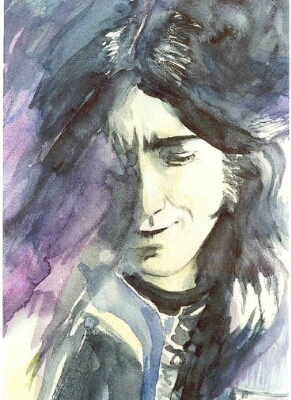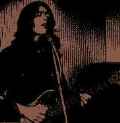 originally turned you on were probably
American. But I don't think you have to be American to play it. In
fact, you probably bring a bit of European influence into it.
Besides, the guitar came from Europe originally. But I think I know
what he means: the American way of life, and the railroads and the
towns. He was saying you couldn't sing about New Orleans unless you'd
been there. So what?
originally turned you on were probably
American. But I don't think you have to be American to play it. In
fact, you probably bring a bit of European influence into it.
Besides, the guitar came from Europe originally. But I think I know
what he means: the American way of life, and the railroads and the
towns. He was saying you couldn't sing about New Orleans unless you'd
been there. So what?